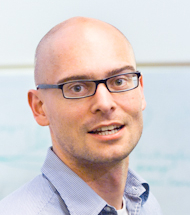 Pieter Abbeel |
Pieter Abbeel received a BS/MS in Electrical Engineering from KU Leuven (Belgium) and received his Ph.D. degree in Computer Science from Stanford University in 2008. He joined the faculty at UC Berkeley in Fall 2008, with an appointment in the Department of Electrical Engineering and Computer Sciences. He has won various awards, including best paper awards at ICML and ICRA, the Sloan Fellowship, the Air Force Office of Scientific Research Young Investigator Program (AFOSR-YIP) award, the Office of Naval Research Young Investigator Program (ONR-YIP) award, the Okawa Foundation award, the TR35, the IEEE Robotics and Automation Society (RAS) Early Career Award, and the Dick Volz Best U.S. Ph.D. Thesis in Robotics and Automation Award. He has developed apprenticeship learning algorithms which have enabled advanced helicopter aerobatics, including maneuvers such as tic-tocs, chaos and auto-rotation, which only exceptional human pilots can perform. His group has also enabled the first end-to-end completion of reliably picking up a crumpled laundry article and folding it. His work has been featured in many popular press outlets, including BBC, New York Times, MIT Technology Review, Discovery Channel, SmartPlanet and Wired. His current research focuses on robotics and machine learning with a particular focus on challenges in personal robotics, surgical robotics and connectomics. |
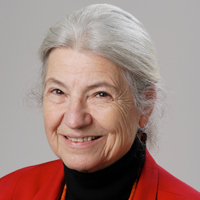 Ruzena Bajcsy |
Ruzena Bajcsy is an American computer scientist who specializes in robotics. She is Professor of Electrical Engineering and Computer Science at the University of California, Berkeley, where she is also Director Emerita of CITRIS (the Center for Information Technology Research in the Interest of Society). She was previously Professor (and Chair) of Computer Science and Engineering at the University of Pennsylvania, where she was Director (and founder) of the University of Pennsylvania's General Robotics and Active Sensory Perception Laboratory, and a member of the Neurosciences Institute in the School of Medicine. She has also been head of the National Science Foundation's Computer and Information Science and Engineering Directorate, with authority over a $500 million budget. She has received numerous awards and honors, including the Association for Computing Machinery (ACM)/Association for the Advancement of Artificial Intelligence Allen Newell Award in 2001, the ACM Distinguished Service Award in 2003, the Computing Research Association Distinguished Service Award in 2003, and the 2009 Benjamin Franklin Medal in Computer and Cognitive Science for her innovations in robotics and computer vision, specifically the development of improved robotic perception and the creation of better methods to analyze medical images. She has also been named by the IEEE Board of Directors the recipient of the 2013 IEEE Robotics and Automation Award for her contributions in the field of robotics and automation with the following citation: "For contributions to computer vision, the active perception paradigm, and medical robotics". |
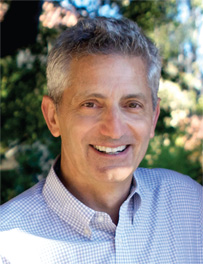 Stephen Boyd |
Stephen P. Boyd is the Samsung Professor of Engineering, and Professor of Electrical Engineering in the Information Systems Laboratory at Stanford University. He has courtesy appointments in the Department of Management Science and Engineering and the Department of Computer Science, and is member of the Institute for Computational and Mathematical Engineering. His current research focus is on convex optimization applications in control, signal processing, and circuit design. Professor Boyd is the author of many research articles and three books: Convex Optimization (with Lieven Vandenberghe, 2004), Linear Matrix Inequalities in System and Control Theory (with L. El Ghaoui, E. Feron, and V. Balakrishnan, 1994), and Linear Controller Design: Limits of Performance (with Craig Barratt, 1991). His group has produced several open source tools, including CVX (with Michael Grant), a widely used parser-solver for convex optimization. Professor Boyd has received many awards and honors for his research in control systems engineering and optimization, including an ONR Young Investigator Award, a Presidential Young Investigator Award, and the AACC Donald P. Eckman Award, given annually for the greatest contribution to the field of control engineering by someone under the age of 35. In 2013, he received the IEEE Control Systems Award, given for outstanding contributions to control systems engineering, science, or technology. In 2012, Michael Grant and he were given the Mathematical Optimization Society's Beale-Orchard-Hays Award, given every three years for excellence in computational mathematical programming. He is a Fellow of the IEEE, a Distinguished Lecturer of the IEEE Control Systems Society, and a member of the National Academy of Engineering. He has been invited to deliver more than 60 plenary and keynote lectures at major conferences in control, optimization, and machine learning. |
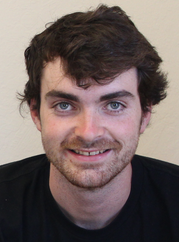 Henry Bradlow |
Henry Bradlow earned his Bachelor's degree from UC Berkeley in Electrical Engineering and Computer Science and currently serves as Chief Technology Officer at Lily. While at Berkeley, he was a member of the UC Berkeley Robotics Lab under the direction of Pieter Abbeel. At Lily, Henry oversees software, electronics and industrial design development. Lily is making an autonomous flying camera that can follow you around and take videos and pictures. |
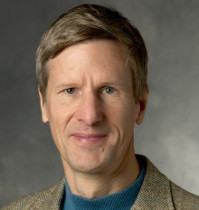 Mark Cutkosky |
Mark R. Cutkosky serves as the Fletcher Jones II Professor and a co-director of the Center for Design Research. Dr. Cutkosky joined Stanford Mechanical Engineering Dept. in the Design Division in 1985 after working for several years in the Robotics Institute at Carnegie-Mellon University and as a machine design engineer at ALCOA, in Pittsburgh, Pennsylvania. His research interests include robotic manipulation and tactile sensing and the design and fabrication of small, biologically inspired robots using layered manufacturing methods. He serves as a principal investigator of the Design Interface for 3D Manufacturing and Biomimetic Robotics projects at the Center for Design Research, Director of the Dextrous Manipulation Lab, and a Co-Director of the Stanford Alliance for Innovative Manufacturing. Dr. Cutkosky serves as a Member of Advisory Board at IFOS, Inc. Dr. Cutkosky's awards and honors include: Fulbright Distinguished Chair for Mechatronics, Pisa, Italy in 2002; JSPS fellowship, Japan in 2001; Charles M. Pigott Professorship in 1996; Best paper awards, ASEE Symposium in 2000 & ASME Database Symposium in 1994; Outstanding paper award, IEEE ICRA in 1993; Anderson Faculty Scholar in 1989 and NSF President Young Investigator in 1986. Dr. Cutkosky received his PhD in 1985 and MS in 1982, both in Mechanical Engineering from Carnegie-Mellon University, and BS in 1978 in Mechanical Engineering from University of Rochester. |
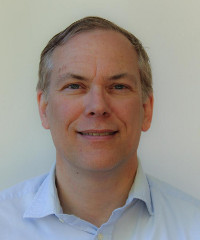 Ron Fearing |
Ronald Fearing is a professor in the Dept. of Electrical Engineering and Computer Sciences at Univ. of California, Berkeley, which he joined in Jan. 1988. He was Vice-Chair for Undergraduate Matters from 2000-2006. His current research interests are in milli-robotics, including flying and crawling milli-robots, parallel nano-grasping (gecko adhesion), micro-assembly, and rapid prototyping. He has worked in tactile sensing, teletaction, and dextrous manipulation. He has a PhD from Stanford in EE (1988) and SB and SM in EECS from MIT (1983). He received the Presidential Young Investigator Award in 1991, and is the co-inventor on 14 US and international patents. |
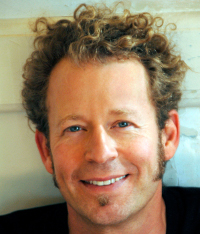 Ken Goldberg |
Ken Goldberg is Distinguished Professor of New Media at UC Berkeley, where he and his students investigate robotics, art, and social media. Goldberg directs the Automation Sciences Research lab and is Faculty Director of the CITRIS Data and Democracy Initiative. Goldberg earned dual degrees in Electrical Engineering and Economics from the University of Pennsylvania (1984) and MS and PhD degrees from Carnegie Mellon University (1990). He joined the UC Berkeley faculty in 1995 where he is Professor of Industrial Engineering and Operations Research (IEOR), with secondary appointments in Electrical Engineering/Computer Science (EECS), Art Practice, the School of Information, and in the Department of Radiation Oncology at the UCSF Medical School. Goldberg has published over 170 peer-reviewed technical papers on algorithms for robotics, automation, and social information filtering; his inventions have been awarded eight US Patents. He is Editor-in-Chief of the IEEE Transactions on Automation Science and Engineering (T-ASE), Co-Founder of the African Robotics Network (AFRON), Co-Founder of the Berkeley Center for New Media (BCNM), Co-Founder and CTO of Hybrid Wisdom Labs, Co-Founder of the Moxie Institute, and Founding Director of UC Berkeley's Art, Technology, and Culture Lecture Series. Goldberg was awarded the Presidential Faculty Fellowship in 1995 by President Clinton, the National Science Foundation Faculty Fellowship in 1994, the Joseph Engelberger Robotics Award in 2000, and elected IEEE Fellow in 2005. Goldberg lives in the Bay Area with his daughters and wife, filmmaker and Webby Awards founder Tiffany Shlain. |
 Michael Jordan |
Michael I. Jordan is the Pehong Chen Distinguished Professor in the Department of Electrical Engineering and Computer Science and the Department of Statistics at the University of California, Berkeley. He received his Masters in Mathematics from Arizona State University, and earned his PhD in Cognitive Science in 1985 from the University of California, San Diego. He was a professor at MIT from 1988 to 1998. His research interests bridge the computational, statistical, cognitive and biological sciences, and have focused in recent years on Bayesian nonparametric analysis, probabilistic graphical models, spectral methods, kernel machines and applications to problems in distributed computing systems, natural language processing, signal processing and statistical genetics. Prof. Jordan is a member of the National Academy of Sciences, a member of the National Academy of Engineering and a member of the American Academy of Arts and Sciences. He is a Fellow of the American Association for the Advancement of Science. He has been named a Neyman Lecturer and a Medallion Lecturer by the Institute of Mathematical Statistics. He received the David E. Rumelhart Prize in 2015 and the ACM/AAAI Allen Newell Award in 2009. He is a Fellow of the AAAI, ACM, ASA, CSS, IEEE, IMS, ISBA and SIAM. |
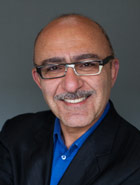 Homayoon Kazerooni |
Dr. Kazerooni is a Professor in the Mechanical Engineering Department at the University of California, Berkeley and director of the Berkeley Robotics and Human Engineering Laboratory. The laboratory’s mission is to develop fundamental scientific and engineering principles on robotics, control sciences, exoskeletons, and bioengineering. Dr. Kazerooni is also the founder of Ekso Bionics. Most of the developed technologies in this lab have found their ways to market. Prior to his research work on lower extremity exoskeletons, Dr. Kazerooni led his team to successfully develop robotics systems that enhance human upper extremity strength. The results of this work led to a new class of intelligent assist devices currently being used by workers worldwide for manipulating heavy objects in distribution centers and factories. Dr. Kazerooni holds a Doctorate in Mechanical Engineering from MIT and has published more than two hundred articles, delivered over 100 plenary lectures in the U.S. and internationally, and holds numerous pertinent patents and awards. As a noted authority on robotics, he is frequently profiled and quoted in the media. |
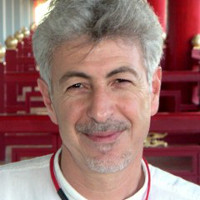 Oussama Khatib |
Oussama Khatib received his Doctorate degree in Electrical Engineering from Sup’Aero, Toulouse, France, in 1980. He is Professor of Computer Science at Stanford University. He is Co-Editor of the Springer Tracts in Advanced Robotics series, and has served on the Editorial Boards of several journals as well as Chair or Co-Chair for numerous international conferences. He co-edited the Springer Handbook of Robotics, which received the PROSE Award for Excellence in Physical Sciences & Mathematics and was also the winner in the category Engineering & Technology. He is a Fellow of IEEE and has served RAS as a Distinguished Lecturer, as a member of the Administrative Committee, and as the Program Chair of ICRA 2000. He is the President of the International Foundation of Robotics Research (IFRR) and a recipient of the Japan Robot Association (JARA) Award in Research and Development. |
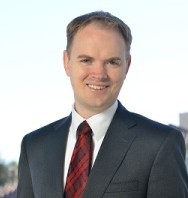 Mykel Kochenderfer |
Mykel Kochenderfer is Assistant Professor of Aeronautics and Astronautics and Assistant Professor, by courtesy, of Computer Science at Stanford University. Prior to joining the faculty in 2013, he was at MIT Lincoln Laboratory where he worked on airspace modeling and aircraft collision avoidance. He received his Ph.D. from the University of Edinburgh in 2006 where he studied at the Institute of Perception, Action and Behaviour in the School of Informatics. He received B.S. and M.S. degrees in computer science from Stanford University in 2003. Prof. Kochenderfer is the director of the Stanford Intelligent Systems Laboratory (SISL), conducting research on advanced algorithms and analytical methods for the design of robust decision making systems. Of particular interest are systems for air traffic control, unmanned aircraft, and other aerospace applications where decisions must be made in uncertain, dynamic environments while maintaining safety and efficiency. Research at SISL focuses on efficient computational methods for deriving optimal decision strategies from high-dimensional, probabilistic problem representations. |
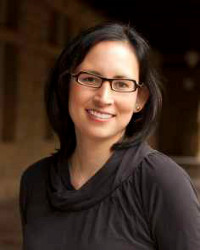 Allison Okamura |
Allison M. Okamura received the BS degree from the University of California at Berkeley in 1994, and the MS and PhD degrees from Stanford University in 1996 and 2000, respectively, all in mechanical engineering. She is currently Associate Professor in the mechanical engineering department at Stanford University. She was previously Professor and Vice Chair of mechanical engineering at Johns Hopkins University. She has been an associate editor of the IEEE Transactions on Haptics, an editor of the IEEE International Conference on Robotics and Automation Conference Editorial Board, and co-chair of the IEEE Haptics Symposium. Her awards include the 2009 IEEE Technical Committee on Haptics Early Career Award, the 2005 IEEE Robotics and Automation Society Early Academic Career Award, and the 2004 NSF CAREER Award. She is an IEEE Fellow. Her academic interests include haptics, teleoperation, virtual environments and simulators, medical robotics, neuromechanics and rehabilitation, prosthetics, and engineering education. Outside academia, she enjoys spending time with her husband and two children, running, and playing ice hockey. |
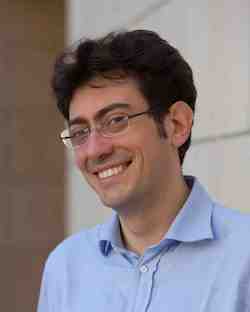 Marco Pavone |
Dr. Marco Pavone is an Assistant Professor of Aeronautics and Astronautics at Stanford University, where he also holds courtesy appointments in the Department of Electrical Engineering, in the Institute for Computational and Mathematical Engineering, and in the Information Systems Laboratory. He is a Research Affiliate at the NASA Jet Propulsion Laboratory (JPL), California Institute of Technology. Before joining Stanford, he was a Research Technologist within the Robotics Section at JPL. He received a Ph.D. degree in Aeronautics and Astronautics from the Massachusetts Institute of Technology in 2010. Dr. Pavone’s areas of expertise lie in the fields of controls and robotics. Dr. Pavone is a recipient of a NASA Early Career Faculty award, a Hellman Faculty Scholar Award, and was named NASA NIAC Fellow in 2011. At JPL, Dr. Pavone worked on the end-to-end optimization of the mission architecture for the Mars sample return mission. He has designed control algorithms for formation flying that have been successfully tested on board the International Space Station. Dr. Pavone is the Director of the Autonomous Systems Laboratory (ASL). The goal of ASL is the development of methodologies for the analysis, design, and control of autonomous systems, with a particular emphasis on large-scale robotic networks and autonomous aerospace vehicles. The lab combines expertise from control theory, robotics, optimization, and operations research to develop the theoretical foundations for networked autonomous systems operating in uncertain, rapidly-changing, and potentially adversarial environments. |
 Steve Rock |
Steve Rock is a Professor of Aeronautics and Astronautics at Stanford University. Professor Rock's research interests include the application of advanced control and modeling techniques for robotic and vehicle systems (aerospace and underwater). He directs the Aerospace Robotics Laboratory in which students are involved in experimental programs designed to extend the state-of-the-art in robotic control. Areas of emphasis include planning and navigation techniques (GPS and vision-based) for autonomous vehicles; aerodynamic modeling and control for aggressive flight systems; underwater remotely-operated vehicle control; precision end-point control of manipulators in the presence of flexibility and uncertainty; and cooperative control of multiple manipulators and multiple robots. |
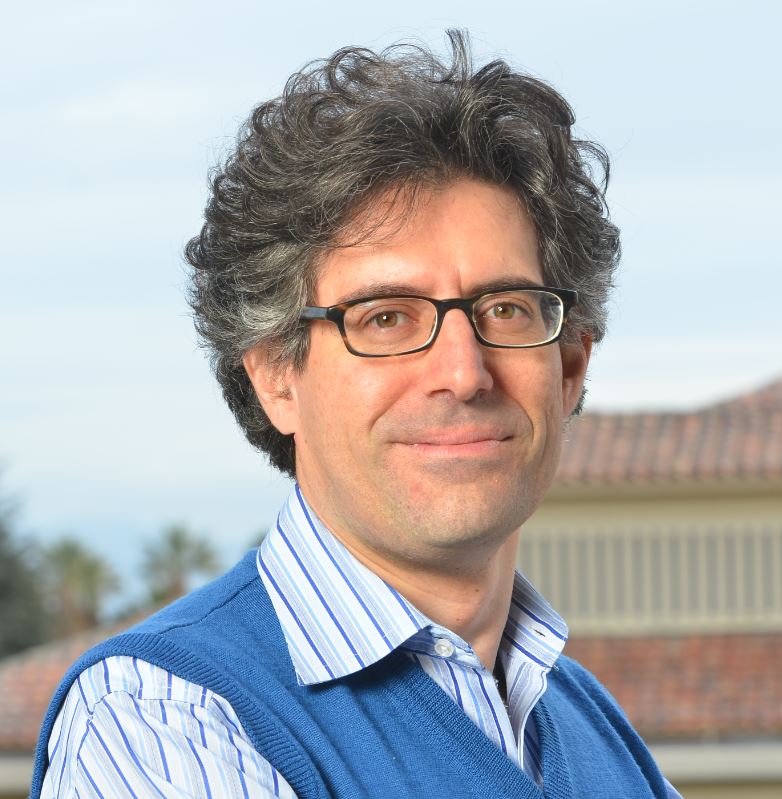 Silvio Savarese |
Silvio Savarese is an Assistant Professor of Computer Science at Stanford University. He earned his Ph.D. in Electrical Engineering from the California Institute of Technology in 2005 and was a Beckman Institute Fellow at the University of Illinois at Urbana-Champaign from 2005–2008. He joined Stanford in 2013 after being Assistant and then Associate Professor (with tenure) of Electrical and Computer Engineering at the University of Michigan, Ann Arbor, from 2008 to 2013. His research interests include computer vision, object recognition and scene understanding, shape representation and reconstruction, human activity recognition and visual psychophysics. He is recipient of several awards including the James R. Croes Medal in 2013, a TRW Automotive Endowed Research Award in 2012, an NSF Career Award in 2011 and Google Research Award in 2010. In 2002 he was awarded the Walker von Brimer Award for outstanding research initiative. |
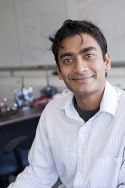 Ashutosh Saxena |
Ashutosh Saxena is an assistant professor in the Computer Science department at Cornell University. His research interests include machine learning, robotics and computer vision. He received his MS in 2006 and Ph.D. in 2009 from Stanford University, and his B.Tech. in 2004 from Indian Institute of Technology (IIT) Kanpur. He has also won best paper awards in 3DRR, RSS and IEEE ACE. He was named a co-chair of IEEE technical committee on robot learning, and is an associate editor of the IEEE Transactions on Robotics. He was a recipient of National Talent Scholar award in India and Google Faculty award in 2011. He was named a Alred P. Sloan Fellow in 2011, named a Microsoft Faculty Fellow in 2012, received a NSF Career award in 2013, and received a Early Career Spotlight Award at RSS 2014. He has also developed algorithms that enable robots (such as STAIR, POLAR and Kodiak) to perform household chores such as unload items from a dishwasher, place items in a fridge, arrange a disorganized house, etc. He has developed learning algorithms for perceiving environments from RGB-D sensors and infer semantic labels, object affordances for tasks such as activity detection and anticipation. Previously, Ashutosh has developed Make3D (http://make3d.cs.cornell.edu), an algorithm that converts a single photograph into a 3D model. Tens of thousands of users used this technology to convert their pictures to 3D. His work has received substantial amount of attention in popular press, including the front-page of New York Times, BBC, ABC, New Scientist Discovery Science, and Wired Magazine. |
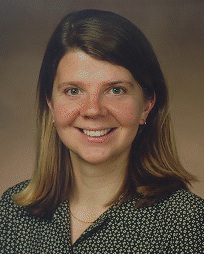 Claire Tomlin |
Claire Tomlin is a Professor of Electrical Engineering and Computer Sciences at the University of California at Berkeley, where she holds the Charles A. Desoer Chair in Engineering. She held the positions of Assistant, Associate, and Full Professor at Stanford from 1998-2007, and in 2005 joined Berkeley. She received the Erlander Professorship of the Swedish Research Council in 2009, a MacArthur Fellowship in 2006, and the Eckman Award of the American Automatic Control Council in 2003. She works in hybrid systems and control, with applications to air traffic systems, robotics, and biology. |
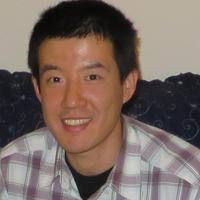 Cong Wang |
Cong Wang is currently a PhD candidate at UC Berkeley. His research interests lie in controls and dynamics, with a recent focus on data-driven approaches for complex robotic systems. His recent work includes statistical prediction of time series for sensing compensation, planning and feature selection methods for intelligent modeling and identification, and nonparametric learning control. Over the past years, Cong has initiated and maintained funded research with academic and industrial partners in robotic manufacturing, semiconductor manufacturing, humanoid robots, and active vehicle safety. Cong received his MS degree in Automotive Engineering and BS degree in Manufacturing and Automation from Tsinghua University in 2010 and 2008 respectively. |